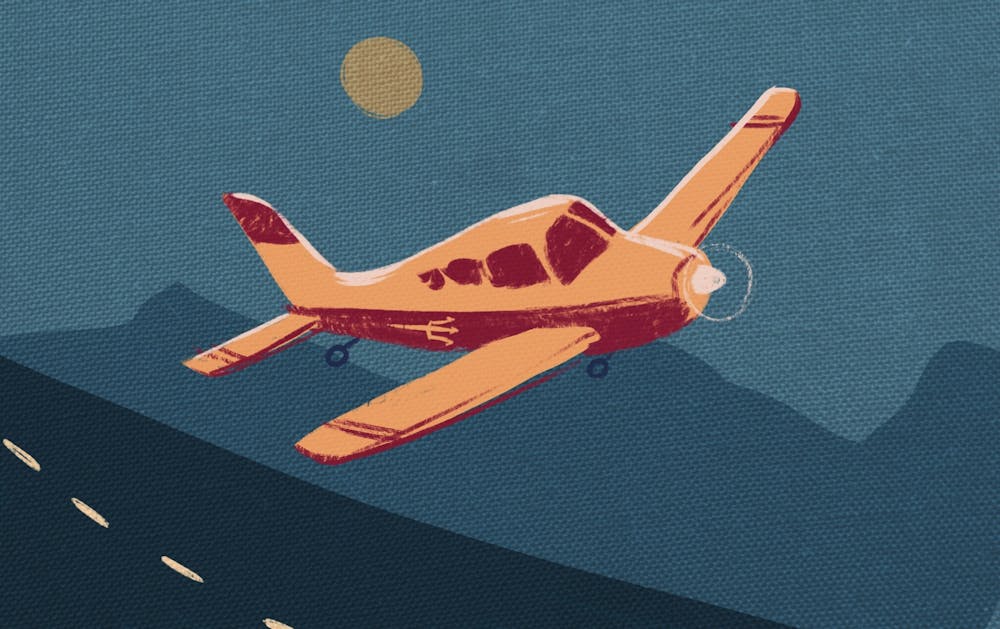The impacts of COVID-19 on the aviation industry are being felt nationwide, and ASU's aviation program is no exception.
Among the industries that have been affected by COVID-19, air travel is one of the most vulnerable. Global air travel is down over 85% compared to last year, according to industry figures reported by the Associated Press last month.
Thousands of air-travel workers may lose their jobs when federal payroll support to airlines expires on Oct. 1, according to azcentral. This puts airlines' existing jobs at risk and could force companies to deny incoming employees.
Since an immediate revival of the industry is unlikely, the workforce awaiting upperclassmen is bleak.
Aviation program associate professor Mary Niemczyk understands these conditions, and she's concerned for the impact it had on her program’s graduates.
“A lot of students that were seniors in the spring had job opportunities lined up, and then some of those offers were withdrawn because of what was going on in the industry,” Niemczyk said.
Mackenzie Rennhack, a junior in the professional flight program, shares this uneasiness and is personally affected by the sudden flip in the job market.
“Six months ago I was told that I was here at the perfect time, that I’d graduate and go straight to an airline," Rennhack said. "Now COVID hit and they’re furloughing pilots and they don’t expect airlines to recover until 2022 or 2023. Now I have to figure out an intermediate plan instead of going to an airline right away."
The Air Traffic Management program within the aviation program has also taken a hit as a result of the virus. The school had partnered with the Federal Aviation Administration in a Collegiate Training Initiative program which would give graduates preferential hiring, but that has since been put on hold.
“Right now facilities are staffed with fewer people and they’re not training at most control centers to prevent the pandemic from spreading, so things have been left in limbo,” said Katherine Wallmueller, a lecturer for the program.
In terms of classes and hands-on work within the program, students continue to attend labs in person and take advantage of the many free to use simulators.
If a lecturer needs to attend virtually, in-class interns who have previously taken the class are available to run the lab and submit assignments for feedback.
“It’s not as ideal as if I was right there with them, but it still meets the needs and students still get valuable feedback,” Wallmueller said.
Rennhack agrees the circumstances have not drastically affected her education in the classroom.
“The flight program is built around hands-on experience, and I think that I’m still getting a lot of that because all classes are offered in-person," Rennhack said. "Since I’m a pilot, we can do our normal flight training on the side which is the real hands-on experience.”
Niemczyk said while some internships were canceled, she hasn't "seen much of a dropoff in terms of internship opportunities." But Rennhack is still wary.
“Internships took one of the biggest hits,” Rennhack said. “I was looking to do an internship with an airline but because of COVID they have been postponed so I’m not sure if I’ll be able to ever do that which is really frustrating to me.”
Regardless of how certain aspects have been affected, students and educators alike are confident that better times are yet to come and may arrive sooner than expected.
“Nobody has a crystal ball, but I would think the industry would start back up soon. It comes in waves, aviation has always done that,” Wallmueller said.
Niemczyk pointed out that all prospects are not lost – Walmart is using drones to drop off COVID test supplies and Amazon has used commercial drones for years, so there are different branches of aviation on the rise while airlines are down. Students will still have opportunities to get involved while the main industries recover.
“I really love what I do. It does make me nervous thinking I won’t necessarily have a job when I graduate, but I genuinely want to keep learning so if jobs aren’t available I‘ll still be flight instructing or flying somewhere on the side,” Rennhack said.
Reach the reporter at amley@asu.edu and follow @MartyLey_ on Twitter.
Like The State Press on Facebook and follow @statepress on Twitter.




